Intersex Identities
The term Intersex refers to a person who has variations of male and female physical, hormonal, or genetic sex traits which can appear at birth or later in life. Intersex people are estimated to be born in approximately 2% of live births.
There is much debate over the ethical practice of surgical intervention for intersex infants. Historically, intersex individuals have been considered “abnormal” and in need of fixing regardless of whether or not the treatment was medically needed. This idea stemmed from John Hopkins University in 1950 when they introduced the “Optimum Gender of Rearing Model.” With this model, typical gender upbringing was emphasized and genital surgeries were highly encouraged for intersex infants. According to the American Academy of Family Physicians, genital surgeries should only be recommended if it “[resolves] significant functional impairment or reducing imminent and substantial risk of developing a health- or life-threatening condition.” While surgeries are necessary in some cases, it’s critical to acknowledge the potentially harmful impacts that medically unnecessary surgery can have. It’s important to take note that forgoing unnecessary medical surgeries on infants have no evidence of having psychosocial problems later in life. Especially since the intersex individual can choose to receive these surgeries when they are old enough to consent. Surgeries impacting the genitalia may have negative irreversible effects such as “infertility, chronic pain, inaccurate sex/gender assignment, patient dissatisfaction, sexual dysfunction, mental health conditions, and surgical complications.” One medical personnel shares their insights:
“They [intersex people] get tired [of the entire situation]. Generally, when we see them here it is for another reason or for a complication. They are patients who have been seen and treated many times. They are not coming for a follow up. They don’t want to know anything. They’ve had surgeries, disorders of their sexuality. They don’t have a sex life. They’re not interested because there’s pain, they don’t feel much pleasure, and also because of the surgeries, which are not harmless: they cause adhesions or scar-like tissue, they have abnormal wound healing and [result in] many complications… they don't end up the same.” (Interview 5: medical personnel)
Further supporting this insight, The World Health Organization, American Academy of Pediatrics, twelve United Nations agencies, and several other organizations denounced early genital surgeries from 2010-2017. Although several organizations highly discourage this practice, medically unnecessary genital surgeries are still legal today in the US and may be practiced by medical professionals. Watch this video about how these irreversible surgeries impact the lives of children and their surrounding loved ones.
Resources
for the intersex community
Seeking Medical Care as an Intersex Person
For parents of intersex children
How To Retrieve Medical Records
Know Your Rights: A guide for parents
for medical providers
Ethical Guidelines for Intersex Surgeries
Intersex Affirming Hospital Policies
Affirming Primary Care for Intersex People
advocacy and support groups
learn more about the intersex community
The Do’s and Don’ts of Being an Ally
Watch Every Body Movie trailer
Read XOXY: A Memoir (Intersex, Woman, Mother, Activist) by Kimberly Zieselman
Legislative Toolkit: How to create change in your state

